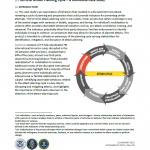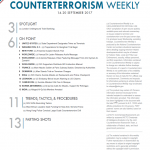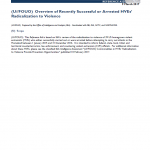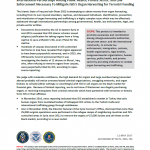
This case study is an examination of behaviors that resulted in a disrupted terrorist attack, revealing a cycle of planning and preparation that could provide indicators for preventing similar attempts. The terrorist attack planning cycle is not a static, linear process but rather could begin in any of the several stages with variances in details, sequence, and timing. An individual’s mobilization to violence often provides observable behavioral indicators such as, pre-attack surveillance, training, and rehearsal. The indicators potentially allow third-party observers and law enforcement to identify individuals moving to violence, circumstances that may allow for disruption of planned attacks. This product is intended to cultivate an awareness of the planning cycle among stakeholders for identification, mitigation, and disruption of attack planning.
Read more →




